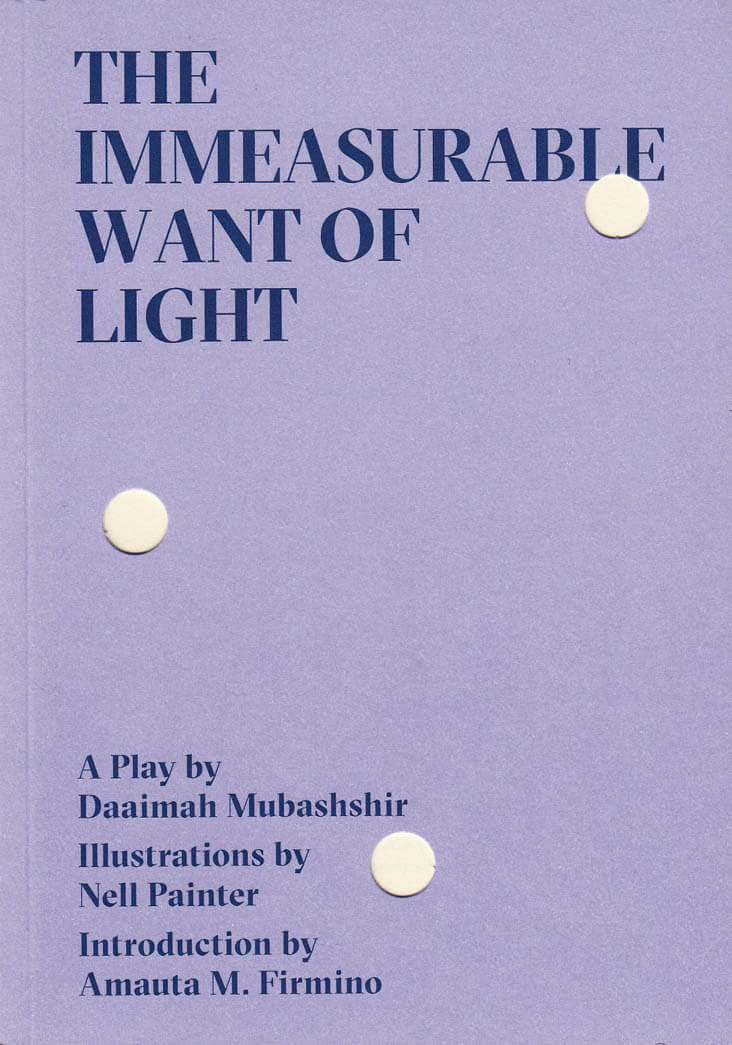
The Immeasurable Want Of Light
The Immeasurable Want of Light is a collection of many short plays drawn from Mubashshir’s two-year personal practice of writing a play a day to capture and express the ever-shifting perspective of living in black skin. Inspired by Chris Ofili’s Afro Muses, each play is distinct in subject, form and tone, presenting a constellation of theatrical portraits.
Daaimah Mubashshir is based in NYC. Awards include a 2019 Core Writer Fellowship at The Playwrights Center (MN), a 2018 Audrey Residency (New Georges), a MacDowell Colony Fellowship, a Catwalk Institute Residency, and a Foundation of Contemporary Arts Emergency Grant. Other published works include The Zero Loop (No Tokens Journal), Come with Me - Solve for X in The Occasional 2, edited by Will Arbery (53rd State Press), and Molasses and A Blue Coat (Kenyon Review). www.daaimahmubashshir.com
Language: English




